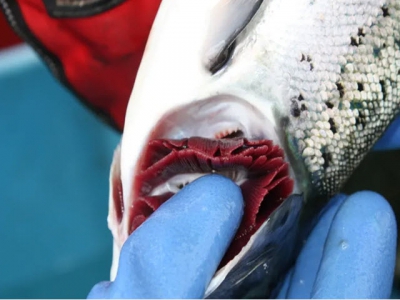A promising start for new AGD-tackling technology

A new technology that is designed to kill Neoparamoeba perurans, the parasite which causes amoebic gill disease (AGD) in Atlantic salmon, has been successfully trialled in vitro.
AGD, which is caused by Neoparamoeba perurans, has been a growing issue in many salmon farming regions, including Scotland and Tasmania
So announced NaturalShrimp, after it commissioned the trials at the CSIRO Agriculture and Food’s Aquaculture Research Team in Tasmania, Australia.
According to Natural Shrimp, with Phase-I efficacy completed, CSIRO has already received ethics approval for starting Phase-II, which will focus on fish welfare during the experimental treatment.
NaturalShrimp is funding the research through its market development partnership with Hydrenesis, the Florida-based exclusive commercialisation agent for the AGD technology in the aquaculture market.
Hydrenesis’ chairman, Bob Watson, explained that: “AGD is costing the salmon industry tens of millions of dollars a year and we are eagerly working with CSIRO and NaturalShrimp to complete testing and begin commercializing this technology.”
NaturalShrimp’s CEO, Gerald Easterling, added: “We are positioning NaturalShrimp to be the leading provider of technology solutions in the fish farming business and we believe that this AGD technology from Hydrenesis is going to be a game changer for the salmon industry.”
Related news
 A new alternative to antibiotics in aquaculture
A new alternative to antibiotics in aquaculture Folium Science has developed a new partnership to extend the application of its “guided biotics” technology to farmed salmon.
 Vietnamese shirmp sells well in US, China despite COVID-19
Vietnamese shirmp sells well in US, China despite COVID-19 Vietnam’s shrimp exports to the United States and China witnessed a gradual increase during the first six months of the year despite the negative impact
 Shrimp exports unscathed by global pandemic
Shrimp exports unscathed by global pandemic Vietnam’s shrimp exports increased by 5.7 percent year-on-year in H1 to $1.5 billion despite the impacts of the Covid-19 outbreak.